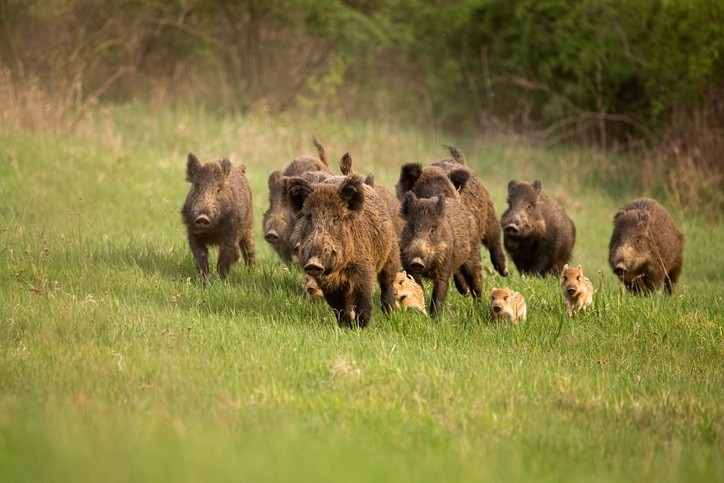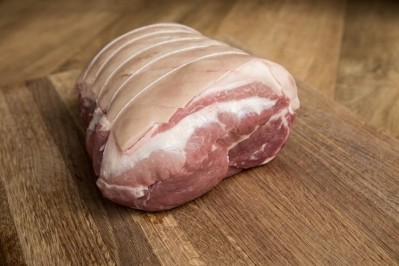African Swine Fever hits Germany: What does it mean for the European pork sector?

German agriculture minister Julia Klöckner has confirmed Germany’s first case of African Swine Fever (ASF) was detected in a wild boar found in Brandenburg, near the Polish border. Speaking to reporters at a press conference this morning, Klöckner revealed that a positive result for ASF came from tests carried out by the Friedrich Loeffler Institute.
Because tests were performed on samples from an already dead animal there is the possibility of a false positive – meaning that further testing is underway. Nevertheless, it looks likely that African Swine Fever has arrived on German soil.
To many industry watchers, it was a matter of when, not if, African Swine Fever would reach Germany.
ASF, a disease that is transmitted to pigs and wild boar but does not affect humans, has been a growing problem for neighbouring Poland, where it has spread throughout the country since it was first detected in 2014.
The German Federal Government was even considering building a fence along the Polish boarder to try and stem the transmission of the disease by keeping out wild boar exposed in Poland. This plan, Klöckner revealed, was yet to pass through Parliament.
The attention of the German authorities has now turned to containment.
The German Ministry of Agriculture unveiled a series of measures to avoid further contaminations and the activation of a crisis management plan. Efforts mostly address wildlife populations and wild boar management. Thinning out the wild boar population and culling infected animals, it is hoped, will stop the disease in its tracks.
Pekka Pesonen, Copa and Cogeca secretary general, said that the response of the authorities and early detection give reason to be optimistic that the German domesticated pig herd will be shielded from contagion.
“The identification of infected wild boars in Germany today is of course a source of concern for the whole European pig meat sector. Nevertheless, we should be reassured. Germany proved its capacity for rapid response and effective actions while the Brandenburg region has a low pig production,” Pesonen noted.
Push for recognition of ‘regionalisation’ principles
No cure or vaccine is currently available for ASF. The FAO notes that the deadly disease has ‘up to 100% case fatality rate’ in animals that fall sick. The socio-economic consequences of African Swine Fever can be staggering.
In China, for instance, where the Ministry of Agriculture and Rural Affairs (MARA) confirmed its first ASF outbreak in August 2018, 165 outbreaks detected in 32 provinces and about 1,193,000 pigs have been culled, FAO data reveals. The current ASF epidemic is expected to reduce China’s pork production by 25-35% according to Rabobank.
In outbreak zones, ‘mass slaughter’ of farmed pigs and wild boar is currently ‘the only effective way to prevent spread to adjacent regions’, according to the European Food Safety Authority, which launched a ‘#StopASF’ campaign earlier this year.
ASF is also highly contagious. It can be spread through direct contact with infected pigs, faeces or body fluids and indirect contact on items such as equipment, vehicles or people who work with pigs. It can also be transmitted to pigs via infected meat.
For this reason, strong international trade restrictions are typically applied to countries where ASF is detected.
As highlighted by Germany’s Klöckner, the concern now is that important export markets, such as China, could close their doors to German pork – despite the fact that the disease has not been found in farmed animals in the country.
“The expectation is a total ban from China,” Rupert Claxton, meat director at strategic consultancy Gira told FoodNavigator. Japan and the Philippines could well follow suit, while South Korea has already moved to ban all pork imports from Germany as of tomorrow.
The hope of the pork sector is that ‘regionalisation principles’ will be recognised by these important export markets as a valid containment strategy. This would see bans placed on trade in pork meat from the affected area – without impacting the German industry as a whole.
Antonio Tavares, chair of the Copa-Cogeca Working Party on Pig meat, called on ‘EU business partners’ to ‘respond in a proportionate manner to this announcement’.
“It is essential that they acknowledge all measures in place to contain ASF and keep their trust in the sector,” he urged.
“We welcome Commission and Member States' efforts to push for the recognition of the regionalisation principles. At a difficult time for the European pig meat sector, it is essential that European and national authorities take efficient and quick measures to support the sector.”
European impact: Oversupply and depressed prices
China is yet to announce a decision, with industry watchers suggesting that regulators there – faced with the prospect of a squeeze on pork supplies – are awaiting the results of the second batch of tests.
If China does move to place a blanket ban on German pork, this would have significant consequences for the European pork market as a whole, Claxton revealed.
“The [scale of the impact] hinges on what China does next,” the meat sector expert elaborated. If German manufacturers lose access to the Chinese market, the European market will be flooded with German pork. In this instance, Claxton would expect ‘EU pork prices to fall sharply as a result’.
And while a supply shortfall might prove a boost for exporters who retain access to the country – notably the USA, Canada and Brazil – for European producers this will come as small comfort. “Other EU producers may face less competition at export, but this is a small proportion of their businesses. The EU market is more important.”
Could this be the crest of a more significant outbreak about to crash down on European producers?
Claxton does not believe swine fever will spread across the continent in the way seen in China, where it entered the domesticated pig population. In Europe, the problem is likely to remain largely confined to wild boar, he suggested. “Most of the European herd is reared indoors. The UK is quite unusual in its large outdoor herd.”
But continued spread is likely, he cautioned, with the possibility the disease could move west through Germany, into Austria, reaching the Netherlands, Belgium and ultimately France.
"It's really, seriously bad news," Claxton concluded.






















